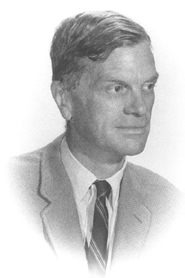from the PROCEEDINGS OF THE AMERICAN PHILOSOPHICAL SOCIETY, December 2002 by ABBOTT GLEASON, Barnaby Conrad and Mary Critchfield Keeney, Professor of History, Brown University :
ADAM ULAM was born on 8 April 1922, to a prosperous professional family of Jewish origins in Lwów, Poland, and he died on 28 March 2000, in Boston, Massachusetts. He received his B.A. from Brown University in 1943 and his Ph.D. in 1947 from Harvard University, where he was on the faculty for almost forty-five years, retiring in 1992.
His career in some ways divides itself into the Polish period of his youth, which ended tragically, and the longer American period that followed it. The Polish period ended abruptly in 1939, when Adam was only seventeen. He and his brother, Stanislaw, the brilliant mathematician, then a Junior Fellow at Harvard, sailed for the United States just two weeks before the Nazis attacked Poland. Adam entered Brown that fall. He was never to see his father or his sister again; his mother had died of cancer in Vienna the previous year. Both father and sister perished at the hands of the Germans, along with numerous other members of his less immediate family. Adam Ulam never returned to his native land.
Although he almost never spoke of his bereavement, the effect on him was profound, inducing in him a complex sense of physical vulnerability to the world combined with a certain emotional reticence, and at the same time a remarkable capacity (and need) for friendship. Ulam had a deeply personal understanding of the horrors of which human beings are capable, and he had very little sympathy for meliorative schemes of any kind. His friend and colleague of many years, Professor Samuel Beer, spoke of his "dark integrity," a phrase that resonated with many of his other friends. Ulam's career at Harvard was a distinguished one: he produced some nineteen books, including his memoirs Understanding the Cold War: A Historian's Personal Reflections, published posthumously in 2000.
As a total oeuvre, Ulam's work was probably the most impressive of any Russian/Soviet historian's of his generation in the United States, in terms of both breadth and depth. He wrote three comprehensive volumes on Soviet foreign policy including the magisterial Expansion and Coexistence (1967, 1976), still regarded as the best overall treatment of the first half-century of Soviet foreign policy, despite the passage of time. As his student Angela Stent put the matter, even though Ulam had no access to archives, "he instinctively understood Soviet foreign policy behavior, and his writings on these issues will outlive those more ephemeral 'scientific' contributions to the discipline." His biography of Lenin, entitled The Bolsheviks, was published in 1965, and remained in print for the rest of the twentieth century. It is still an invaluable study of the Bolshevik mentality and a splendid read. His Stalin, the Man and his Era appeared in 1973 and remains one of a handful of essential studies of the dictator. Although Ulam's major interest was the power politics of the twentieth century, he also produced several notable studies of pre-revolutionary Russian radicalism. He also wrote on English socialism, the schism between Stalin and Tito, and what he regarded as the decline of the American university during the sixties.
Ulam had a remarkable memory and an equally remarkable capacity for systemic analysis, which one always thought must bear some genetic relationship to his brother's mathematical genius. But he united that propensity for close and detailed analysis with other qualities not often found in its company: a novelistic interest in the details of human life and a bold sense that he was entitled to investigate the lives of men of power with freedom--indeed irreverence--and imagination. Although Ulam taught his whole career in Harvard's government department, he was really an historian. But his profoundly historical sense of the world was complemented by a pronounced lack of interest in historiography and its traditions. He depended upon his own instincts to tell him what was important and upon his own taste and inclination to direct him in the achievement of the tasks he set himself. He never thought about fashions in history or what "needed to be done." He read immensely widely, but generally as the spirit moved him. His footnotes, though never misleading, were often cavalier and frequently elicited disapproval from the strait-laced.
Ulam's intellectual home was not Harvard's government department, but the Russian Research Center, now the Davis Center for Russian Studies, where he worked for half a century. There he produced his remarkable series of publications; there he received the thousands of books and pamphlets that his research assistants brought him from Widener Library; and there he held forth every morning at "coffee," where he exchanged views and on occasion information with his colleagues. "Coffee" was a pleasure for most of his companions, but it was also thoroughly institutionalized, and attendance was de rigeur for visitors and regulars alike. There was never any question as to who was the presiding genius.
Finally, it seems important to observe that in his own way he was part of the "intellectual migration" from Europe to the United States occasioned by German National Socialism. He shared certain dominant traits of this remarkable body of men and women: a profound realism, laced with irony; a disinclination to believe that human beings are likely to become much better any time soon; a fascination with power; an admiration for Americans, tempered by the belief that despite their admirable qualities they remained naive and childlike provincials, who on occasion needed to be protected from themselves and their generous impulses.
This remakable and distinguished scholar will live in the memory of his friends and students for many years to come. He left two sons, Alexander and Joseph, and his wife, Mary Burgwin Ulam, from whom he was divorced and with whom he was subsequently reconciled.
Elected [to the Society]1989
|



